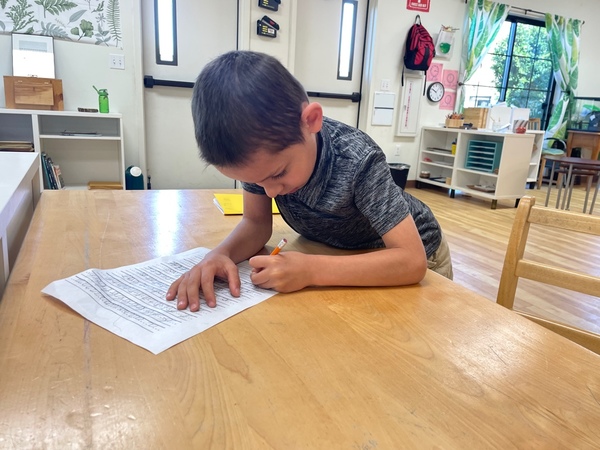(858) 759-0631
How do we educate our elementary child today for a very different tomorrow? By building the whole child to have skill sets that create curiosity.
The future workforce will invite educated young adults into a world of emerging businesses in categories not yet invented.
Think of our parents. They never even touched a computer until they were teens. Even today, their digital skills are far below that of our Generation Z children.
What our kids learn in Grades One thru Six will have constants like English, math, history, and language. No matter where they are taught, the underlying concepts, creativity, and characteristics in applying those subjects will be based on how they are taught.
We must teach our children critical thinking skills to succeed in an America that will be more scientific, technical, engineering, math, and creatively grounded than in any previous generation. How will our kids master core academic, personal, and social skill sets if they’re memorizing rather than thinking; sitting in long rows rather than communicating in circles; rarely collaborating, and, thus, not learning to lead?
This is the difference: All schools build minds, but a Montessori school also builds the whole child with broad skill sets. The method is based on learning fundamental steps students must take before they achieve mastery—without fear of failure and with determination and purpose.
Visit a Montessori elementary school, and what will you see? Children actively building social skills, academic concepts, and personal characteristics.
Building Social Skills
We teach ‘Grace and Courtesy’ communication skills, creating natural outgrowths toward leadership.
We talk about manners and being polite. We talk about our feelings and how we treat each other. We talk about the power of our words on others’ emotions.
Our children learn to express what they are learning and learn to talk about how to be ‘solution oriented’ by trying new things and trying to make things better.
We teach collaboration and effective communication based on teams and each team member’s strengths and weaknesses.
And, as an outgrowth of understanding each other, we create a natural phenomenon—leadership.
In Montessori classes, we place students in broad age ranges.
Younger children learn from older children--allowing them to figure it out themselves. But conversely, older children develop leadership skills by helping younger students--while creating a bond of empathy with them.
Peer learning is a core difference. It builds a respectful culture and an understanding of learning the steps to master before hearing a laughing, smiling child shriek, ‘I did it myself!’
Building Academic Concepts
Our key is imparting meaning—laying foundations via concrete concepts for the mind to explore. Once your child grasps the concept, we teach the examples.
This method of teaching strategies rather than tactics—and doing it via individualized learning—are core Montessori advantages.
Building Personal Characteristics
We teach determination, resourcefulness, and a passion for learning and growing.
How? We release children from a core fear: making mistakes.
It’s okay to make mistakes; everyone does. Keep trying. Try another way to solve the problem! By trying, you’ll create a determination to succeed. And that means students will manipulate the concepts they’ve learned so they’ll explore and discover.
If the focus is “I’ll figure it out myself,” you’ll see your potential and possibility. Via self-motivation, then, you’ll think your way through a problem to achieve mastery of it. By making mistakes, then, we learn how to go forward.
Can We Help You Raise a Child of the Future?
You want a child who becomes a self-disciplined teenager, a successful college student, and a young adult who ascends and achieves because they are independent learners who think critically, communicate clearly and display leadership traits.
Is it any wonder that Montessori alums become well-balanced college students who graduate to become valued employees and entrepreneurs? Ask Jeff Bezos, founder of Amazon, or Sergey Brin and Larry Page, co-founders of Google. They were Montessori kids.
When you’re forming the decision on what elementary school is best for your child, look to our Montessori programs from eighteen months through 6th Grade.
That well-balanced adult can be your Lifetime Montessori School child.

